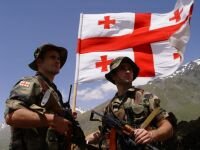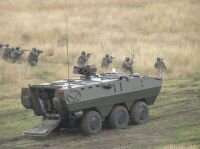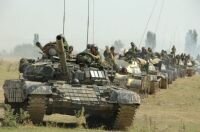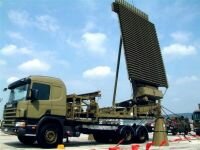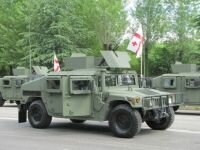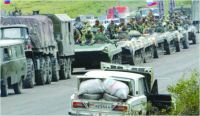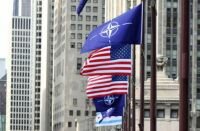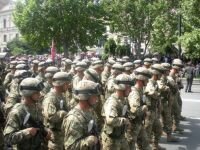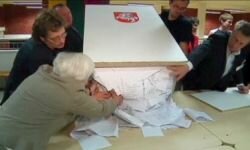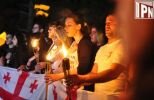Four years have passed since the August war. 228 civilians, 170 military men, 14 policemen died in Georgia; 8 soldiers are missing. 150,000 people were forced to leave their homes. Up to 30, 000 out of them are refugees. Events were developing comparably peacefully in the beginning of 2008. There were accusations from Moscow, puppet regimes and Tbilisi about attempts to aggravate the situation.
ithin one year after the start of an armed conflict in Apkhazeti on 14 August, 1992, the official Tbilisi lost control over this region of Georgia. The war that started in Tskhinvali on 8 August, 2008 ended with the similar result. Taken together, the two wars caused displacement of nearly half a million of Georgian population out of Apkhazeti and Tskhinvali region. It was no coincidence that both tragic wars broke out in the summer month of August – in 1992 and in 2008 respectively.
New Minister embarks on a new concept development
In a few days after taking the office, the new Defense Minister Dimitri Shashkin has instantly proposed a whole set of novelties to the armed forces. According to the statement of the Ministry, it is about to start working on the new concept based on the principle of Three Totals: the first is Total Care for military personnel and their families by the State and provision of various social benefits; the second is Total Training of troops to enhance readiness for NATO integration; the third is Total Defense that includes extension of reserve forces and enhancement of the country’s defense capacity.
Despite tensions in Syria, the Iranian issue remains hot. What is more, an argument has been raised in the Russian media that in case of an Israeli or American attack on Iran, the Giumri military in Armenia would immensely acquire greater importance and entail serious build-up. This in turn may obligate Russia to cut a corridor through the Georgian territory towards Armenia.
On 14 June State Department released an official statement on the third annual meeting of the US-Georgian Strategic Partnership Commission in Batumi that was opened by the US Secretary of State Hillary Clinton on 5 June, while on her visit to Georgia.
Why should we repeat American mistakes?
Military parade of Georgian Army held on 26 May presented all types of armored vehicles, including three versions of Didgori, two versions of HMMWV (armored and without armor), Cobra, Wolf, Ejder and infantry military vehicle Lazika. An attentive observer could notice that all the vehicles had armaments externalized on top of cabins. It’s a correct decision to an extent because plumes of burnt gunpowder generated during intensive shooting do not fill cabin insides and the crew is saved from inhaling the poisonous gases.
US Secretary of State Hillary Clinton has finished her South Caucasian tour. She had official meetings in Yerevan, Batumi and Baku. In Batumi the meetings took place with all the work groups formed within the framework of the US-Georgia Strategic Partnership Charter. Most likely, the discussions there touched many issues, including forthcoming elections in Georgia and the need to hold them democratically, cooperation in the defense sphere and the problem of Iran.
Aftermath of armed conflict
The breakaway regions of Abkhazia and South Ossetia held presidential elections on 26 August and 13 November respectively. The elections were declared illegitimate by the Georgian authorities and the international community. The elections in South Ossetia were accompanied by protests, reports of increased violence and harassment of opposition candidates.
At the NATO Summit in Chicago, Georgia participated in three meetings, each held in a different format. The first meeting took place in a 28+13 format, i.e. NATO member states plus 13 main NATO partners including Georgia as the sole representative from the Eastern Europe. The second meeting gathered 28+4 countries where Georgia was represented together with three aspiring countries – Macedonia, Montenegro and Bosnia and Herzogovina – and discussed membership prospects with the NATO member States.
Kutaisi, the second largest city of Georgia, located in the western part of the country, will soon witness a large-scale military parade dedicated to the Day of Independence. The event will be held in front of the newly built parliamentary building and - after a long break - will show the home-made military machinery.


















